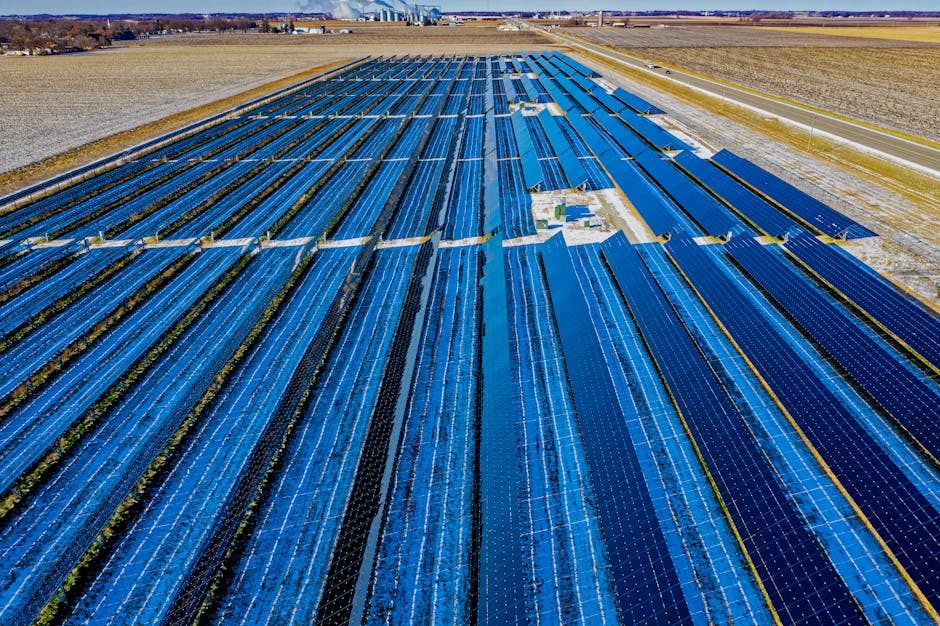Community Power: How EV Owners Influence Adoption Rates
As electric vehicles (EVs) surge in popularity, a compelling social phenomenon has emerged—the unique communities formed by electric vehicle owners. These groups are not just a collection of enthusiasts; they’re dynamic ecosystems where shared experiences, knowledge, and advocacy converge, significantly influencing the adoption of EV technology among peers. In this article, we will explore how these communities foster connections and empower discussions, ultimately driving the wider transition to electric mobility.
The Rise of EV Communities

As the automotive landscape shifts towards electrification, various social dynamics surrounding EV ownership have flourished. The advent of social media and online forums has enabled electric vehicle owners to gather, share their insights, and celebrate their experiences. Platforms such as Facebook groups, Reddit communities, and even dedicated apps like PlugShare have become modern-day watering holes for enthusiasts, where everyone from new owners to seasoned aficionados can exchange tips, troubleshoot issues, and celebrate milestones.
Shared Experiences and Knowledge Exchange

One of the most significant aspects of EV communities is the sharing of knowledge. Each owner's journey involves distinct challenges and triumphs—be it navigating the charging infrastructure, understanding battery management systems, or maximizing range during road trips. Online forums serve as platforms where challenges can be addressed collectively. For instance, a user might post about difficulties finding charging stations in a remote area, only to receive feedback from other members who share their locations, solutions, or even apps that highlight available chargers.
When driving an EV, whether it's a Tesla, Nissan Leaf, or the latest Rivian model, the shared experience of participating in a sustainable movement becomes a bond. These alliances can lead to informal mentorships, where seasoned EV owners guide newcomers through aspects of EV ownership that may seem daunting at first. The empowerment derived from shared knowledge can create a ripple effect, encouraging hesitant individuals to transition from traditional gasoline vehicles to EVs.
Advocacy as a Community Strength

Another crucial aspect of EV communities is their role in advocacy. Many electric vehicle owners actively engage in discussions aimed at promoting sustainable practices and policies. These advocates are often vocal about incentives, tax credits, and other governmental support that can further encourage EV adoption. For example, an active local chapter of an EV club may rally members to attend city council meetings, advocating for more charging stations in the community—a cause that resonates beyond personal interests.
Additionally, social media campaigns highlighting the benefits of EVs—such as lower emissions, reduced fuel costs, and improved air quality—are often spearheaded by these communities. An example of effective advocacy can be seen in grassroots movements that contribute to changing local policies. By sharing their narratives and experiences, these owners influence public perception and encourage local governments to invest in EV infrastructure.
The Peer Impact on Adoption Rates

Recent studies have shown that social influence plays a significant role in the decision to adopt new technologies, including electric vehicles. According to behavioral science research published by Harvard Business Review, individuals are more likely to adopt an innovation when they see their peers embracing it. Electric vehicle communities provide social proof that ownership is not only feasible but also rewarding.
Furthermore, the phenomenon of "cascading behaviors" can be observed in these environments. When one individual goes electric, their friends, family, and community members may follow suit. This can be attributed to the perceived social status gained from owning an EV or simply the curiosity sparked by seeing someone else in their circle share their positive experiences. In this sense, EV owners are not just consumers; they are social catalysts driving significant shifts in consumer behavior.
Online Presence: The Role of Social Media

Social media has revolutionized how we connect with communities beyond geographical restraints. Platforms like Instagram, Twitter, and YouTube have enabled electric vehicle owners to share their journeys, from unboxing new models to detailing long-distance travel experiences. Is there anything more engaging than watching a vlogger take a cross-country road trip in an EV and document charging station visits along the way?
Such narratives capture the imagination of potential buyers and create a sense of belonging among existing owners. For instance, hashtags like #EVRoadTrip or #SustainableDriving not only highlight personal journeys but also promote community pride. The authenticity of these stories resonates with anyone considering the leap to electric mobility, providing relatable, real-life examples of successful EV adoption.
Local Clubs: Face-to-Face Community Engagement
Beyond the digital world, local EV clubs play a crucial role as well. These groups organize meetups, joint road trips, and advocacy events that strengthen both friendships and community spirit. The shared joy of driving electric is palpable—whether it's a car show to display the latest models or a family-oriented event to introduce kids to sustainable technology, these local initiatives foster engagement within the community.
Think of it this way: Imagine attending a weekend gathering with fellow EV enthusiasts, sharing stories over snacks while discussing the latest in battery technologies or future collaborations with eco-centric nonprofits. These are events that create lasting bonds and build a sense of belonging, which naturally translates into a more significant interest in adopting EV technology by friends and family who may not have initially considered the switch.
The Importance of Recognition
An often-overlooked aspect of community dynamics is recognition. Electric vehicle owners enjoy sharing their achievements with one another, whether it’s the number of miles driven or environmental impact measurements. Awareness of the positive impact of their choices—like contributing to cleaner air and less noise pollution—fuels their enthusiasm and inspires others to consider making a change.
Platforms that track and share vehicles’ sustainability metrics can help foster this recognition among peers. Gamification of EV ownership, such as rewarding participants for reaching environmental goals, creates friendly competition and encouragement. It's not just about "going electric"—it’s about celebrating EV ownership as part of a larger movement toward sustainability.
External Influences: Industry Trends and Policies
The role of EV owners extends beyond just their immediate communities; they can influence broader industry trends and policies. Their feedback can serve as valuable data for manufacturers looking to innovate and improve. As auto companies ramp up their research and development of EVs, understanding owner perspectives becomes paramount.
Moreover, EV communities can act as powerful lobbying groups that highlight the need for policy reform or improvements in infrastructure. Collaboration with manufacturers often leads to the creation of vehicles that better meet the needs of users and further drives consumer loyalty towards sustainable brands.
To dig deeper into how policies and advancements impact the EV landscape, take a look at our piece on how bioeconomy innovations are carving paths for EV manufacturing.
Bridging Gaps: Addressing Misconceptions
Many potential EV adopters are deterred by misconceptions about electric vehicles, whether it’s concerns about range anxiety, charging times, or performance. EV owners stitch together knowledge and experiences that dismantle these stereotypes, providing evidence-based reassurances. For instance, meetings often facilitate discussions on how EV charging has evolved rapidly, showcasing the expandability of charging stations and presenting practical solutions for everyday use.
Addressing these misconceptions is fundamental. It dispels myths and encourages skepticism to be replaced by excitement. Local clubs or online forums can provide resources like comprehensive FAQs or compiled data regarding common concerns from prospective EV owners.
Leveraging Community Power for Wider Adoption
The discussion of social influence doesn’t just end with evoking interest; it can be harnessed for wider goals. For instance, organized community events can inspire others to test drive EVs or consider their adoption during initiatives, such as National Drive Electric Week. The enthusiasm generated in these environments can influence onlookers, leading to higher adoption rates.
Moreover, creating partnerships between EV communities and local businesses or educational institutions can amplify outreach efforts. Through collaborative workshops, information sessions, and incentives for EV adoption, these communities cultivate relationships that expand their reach and challenge barriers to adoption.
The Next Wave of Electrification
As electric vehicle ownership continues to rise, understanding the social dimensions behind this transition becomes crucial. Homegrown EV communities foster unique social dynamics that propel positive change, as we’ve discussed throughout this article. The interconnectedness of knowledge, advocacy, shared experiences, and peer influence creates an environment ripe for change within personal spheres, leading to broader societal shifts toward electric mobility.
By celebrating those who are driving this movement—both literally and metaphorically—we can create a more sustainable future for generations to come. Community involvement isn’t just a byproduct; it’s foundational to making the shift towards electric vehicles a collective norm rather than an individual preference.
Final Thoughts
Electric vehicle ownership is not solely defined by the vehicle; it is a lifestyle interwoven with community, advocacy, and shared knowledge. By recognizing the social influence inherent in these dynamics, we can enable more individuals to join the electric revolution. The drive to adopting EV technology isn't only a technological endeavor but an empowering journey fueled by connection, recognition, and collaboration.
If you're an EV owner or considering the switch, think about how you can engage with your local community or online groups. Harnessing the power of shared experiences not only enriches your electric vehicle journey but also contributes to a more sustainable future for all.



